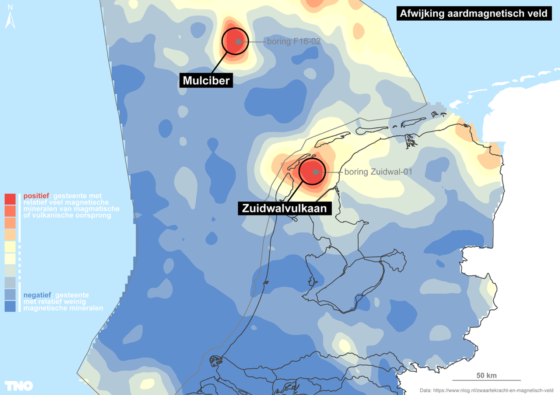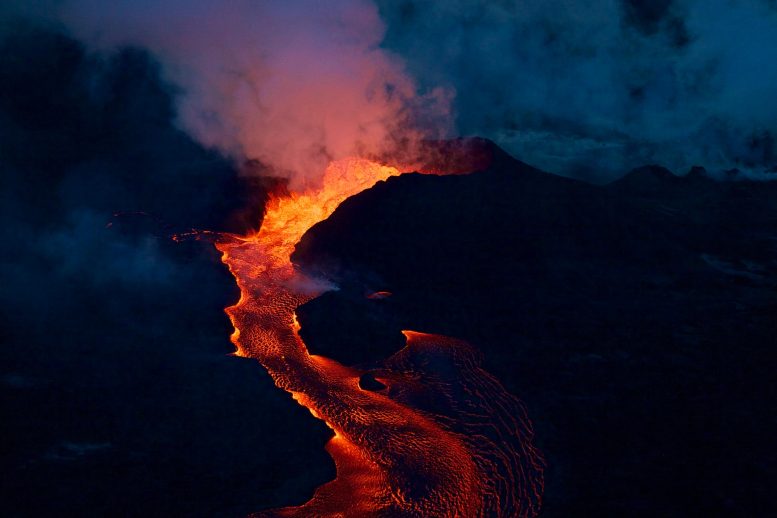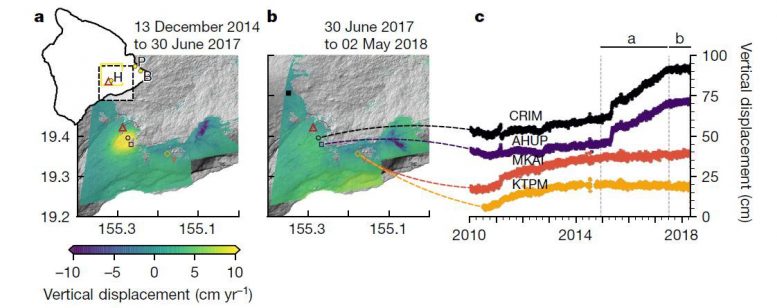Fascism, capitalism, Donald Trump and the pandemic: How did we get here?
May 10, 2020 By Andrew O'Hehir, Salon- Commentary
One thing that unites the MAGA-hat cosplay fascists of the anti-lockdown “movement” and the Karens and Chads of the hashtag-resistance is the shared conviction that the United States of America is special and that nothing that happens here has much relationship to anything that happens anywhere else. OK, we might hear some comparisons to Germany in the 1930s — on both sides, honestly! — but even that is kind of a special declaration of specialness, as if fascism hasn’t experienced something of a spring awakening all around the world.
This article first appeared in Salon.
Defend democracy. Click to invest in courageous progressive journalism today.
Normally this blindness to history and context, and this theological belief in the greatness of whichever aspect of Americanness is being foregrounded at the moment — whether that’s constitutional checks and balances or sepia-toned, sentimentalized white supremacy — is totally wrong-headed. I mean, it pretty much always is. But right now, in the deeply improbable timeline where we find ourselves, I think we have to admit that America’s situation is distinctive and unique.
00:0002:58


Our nation is leading the world — right down the historical crapper. Donald Trump is not solely responsible for this, and I’ll stick to my guns on the argument that he’s not all that important, in world-historical terms, and not nearly as anomalous as he seems. But, sweet Jesus, has he found his moment and made the most of it!
After three-plus years of criminality, corruption and general incompetence — much of it so clownish that a mid-level Cleveland mafia boss of the 1950s would have found it insulting — our bleach-injecting, hurricane-nuking, Greenland-purchasing stable genius has finally stumbled into the major crisis that will define his presidency for posterity. (Assuming there is any.) Yeah, whatever about Ukraine and his impeachment trial — which was this year, unbelievably enough, and it’s only May. That’s now totally forgotten. Robert Mueller, pulling long faces on Capitol Hill and delivering indecipherable double negatives perhaps meant to denote grave constitutional concerns? I don’t even remember who that is, do you?
The hell with that stuff. Along came the coronavirus pandemic, which was in general terms a predictable event but one that nonetheless caught the Western world at a vulnerable moment. The major democracies of Western Europe, all of which are going through significant trauma, handled it well in some cases and alarmingly poorly in others. Then the virus came to the United States, and I have to say: When it comes to fucking this up, we’re No. 1.
The Trump administration’s flamboyant display of overconfidence, lies, mixed messaging, buck-passing, goalpost-shifting, petulant blame games, incoherent policy reversals, conspiracy theories and anti-scientific balderdash has, in a certain sense, been wondrous to behold. It has certainly been revelatory, in that our nation has shown its ass to the world, and from now until the end of time will not plausibly be viewed as a leading power in science or medicine or public health.
This isn’t funny, obviously, and I will stop trying to be entertaining long enough to observe that we can now say with confidence that at least 100,000 Americans will die in this pandemic, and probably many more than that. The fact that Trumpian virus-truthers are out there convincing each other that those numbers have been faked somehow, and that the libtards have some vested interest in running up the score, is simultaneously completely unsurprising at this point and deliriously far beyond anything we could have imagined back in the innocent days of the Benghazi investigation and “but her emails.”
How many of those human lives could have been saved with a coherent and rational response from the federal government? We will likely never know, but whatever the number is, it’s much too large.
Will the Trump administration — and, to speak truthfully, its behind-the-scenes puppetmasters in the corporate suites with sweeping views of New York Harbor and the Statue of Liberty — succeed in framing those deaths as vaguely regrettable but necessary sacrifices to “the economy” or “the American way of life,” understood as grand, inhuman abstractions not unlike the deities of bygone civilizations? We don’t know that either. It’s cold comfort to conclude that their scheme to pretend that the economy has been “reopened” and everything’s going great and this was the plan all along is stupid and won’t work. But that’s where we are.
I remarked on Twitter recently that it would clarify matters if we replaced all such generic references to “the economy” and “the market” and “America” with “Yog-Sothoth,” an all-devouring Elder God from H.P. Lovecraft’s paranoid mythos. Americans are warriors, who have never hesitated to face death to save Yog-Sothoth! Human lives are sacred, of course — even, hypothetically, those of older and less productive people — but not as sacred as Yog-Sothoth!
Please don’t start mumbling at me about how everything will be different after Joe Biden takes office and the Democrats win the Senate. Just take all that old flea-ridden furniture to the dump and drop it off. Because even if all that happens, we’ll get the usual half-baked, apologetic Democratic policy mélange, in which everybody gets an orange slice and the Wall Street banks and Silicon Valley tycoons get monopoly control of all the orange trees, all the water and all the sunlight. If Republicans are all-in on the Yog-Sothoth cult, Democrats have got some really good focus-group pie charts from 2004 that tell them the smart play is to occupy the middle ground between appeasing it and embracing it.
And we will still be, now and forever, the country that elected a third-rate con man who had no actual interest in being president, and whose only policy agenda was to pursue psychic revenge against the elite liberals who mocked him by encouraging racist backlash, pouring gasoline on the culture wars and demolishing the federal government from the top down. And we’re stuck with him, by the way. Please disabuse yourself of the liberal magical thinking that Trump will go to prison after he leaves office (he won’t), that he won’t somehow be rehabilitated as a “controversial yet charismatic” ex-president (he will) or that he won’t get a presidential library in his dotage and a state funeral when he finally kicks the bucket.
Of course it’s true that any other president, even the dim or reactionary ones, would have done a vastly better job during this emergency. Barack Obama would have been great, probably superior at handling a pandemic than he was at the political and economic crises he actually faced — but Bill Clinton and, for that matter, George H.W. Bush would have managed the situation like competent adults as well. (Even George W. Bush would probably have grasped that it was a time to defer to expert advice.) If there’s a silver lining here — and there really isn’t — there’s no longer any question that Trump will be remembered as a massively useless and destructive president. He had some work to do to get past James Buchanan and Andrew Johnson into “worst episode ever” position, but I think he’s done it now.
But to act like it’s just bad luck that we wound up with a hateful, soulless idiot in the White House at this perilous moment is missing the point on a grand scale. We got here because this is where we are. Donald Trump could only have happened now, and he represents the confluence of various toxic currents that have been thrown into stark relief by the coronavirus pandemic. We can summarize those in familiar terms: the two-party political system is paralyzed, our civic culture is bitterly divided and dysfunctional, economic inequality has reached epic proportions, and the global economic system, undergirded by the philosophy known as “neoliberalism,” is in profound and worsening crisis.
One consequence of all that bad stuff is the global resurgence of fascism, which I mentioned up top. In the American context that has provoked an increasing number of violent hate crimes along with a whole lot of theatrical play-acting, such as the armed goons seen protesting in Lansing, Michigan, and other state capitals. I’m not suggesting those people are not dangerous — read this cautionary essay by Aleksandar Hemon, who lived through the violent collapse of Yugoslavia — but for the moment they’re disorganized and their numbers are small. Most American fascism is just petty, lard-ass older people emitting gas on the internet.
Bands of gun-toting morons staging photo-ops on the statehouse steps, as I read things, is more a symptom of cultural collapse than a cause. It’s also unclear whether Donald Trump has any actual thoughts about the fascist renewal, beyond an instinctive sympathy with malice, racism and stupid caricatures of masculinity. He’s had Steve Bannon and Stephen Miller whispering dark wisdom in his ear at various times, but he possesses no vision of the world beyond his own self-glorification.
When it comes to the free-trade and fiscal austerity policies identified with neoliberalism, the equation is different: Trump doesn’t understand those things and instinctively dislikes them, which might be the only borderline-redeeming quality of his presidency. Bannon tried to push him toward full-throated “national socialism,” which would never have worked but at least had the virtue of logical consistency. Which, come to think of it, is no longer a virtue!
After following a trail of billion-dollar crumbs into the forest to the cabin in the woods haunted by Mitch McConnell and the CEO class, Trump has now thoroughly imbibed the brainworms of the Yog-Sothoth paradox, served in a delicious cocktail of Lysol and hydroxychloroquine. That would be the paradox through which a system that oppresses almost everyone in endless cycles of overwork, bottomless debt and pointless consumption, while massively enriching a few, is identified with “freedom.” This is how neoliberal capitalism and the rising tide of fascism, which from the beginning were supposed to be incompatible, have become aligned.
If this vision of freedom is completely incoherent or psychotic, in America it gets invested with all kinds of symbolic meaning. The “freedom” to go into Publix without wearing a mask or to buy a toaster oven without standing in line — like the freedom to reject scientific thought as “cultural Marxism” or the freedom to hold fantastic and irrational opinions because coastal liberals find them obnoxious — becomes a totem of heroic individual resistance to tyranny, a marker of identification with the founding fathers and the noble “lost cause” of the Confederacy and John Wayne at the end of “Stagecoach.”
It’s perfectly true that most Americans do not hold blatantly insane beliefs about freedom and science and history and the nature of our economy, and that large majorities appear to favor what could broadly be called social-democratic solutions to our nation’s worsening problems. That may yet create legitimate reasons for optimism in the decades ahead, but in the short and medium term it’s nowhere near as encouraging as it ought to be. W.B. Yeats’ lines from “The Second Coming” get quoted too often, because they’re irresistible:
The best lack all conviction, while the worst
Are full of passionate intensity.
Given our political duopoly, “the best” must be read as “the best available option,” that being the not-blatantly-insane party, which — even faced with the cult of Yog-Sothoth — remains consumed by existential doubt and internal conflict, not to mention pathologically averse to anything that resembles a large or ambitious plan not cloaked in immense draperies of bewildering bureaucratic language.
It’s not just that the NBI Party has selected a hilariously terrible candidate to run against Trump, or that it keeps flirtatiously trying to strain the biggest chunks of fascism out of the neoliberal Clorox cocktail and chug the remainder. Those things are only true in the first place because everyone in mainstream American politics remains trapped in the toxic myth of American exceptionalism — the narrative frame that insists we are a special nation anointed by God and invested with divine purpose, if only we can figure out what that is.
That’s a blatantly insane belief that has distorted our entire history, and has now brought us Donald Trump and the national tragedy and humiliation of this pandemic. Those things are not anomalies, and we cannot wish them away. We will never get past them unless we free ourselves from the collective delusion of our national greatness. Time is running out.










/cdn.vox-cdn.com/uploads/chorus_image/image/66777113/GettyImages_1211906556.0.jpg)